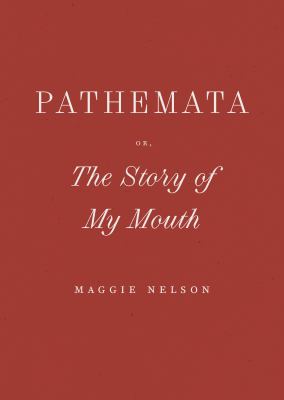 Join staff and community members for next First Thursday Book Discussion at noon on August 7 in the Columbia Public Library to talk about “Adventures in the Louvre: How to Fall in Love With the World’s Greatest Museum.”
Join staff and community members for next First Thursday Book Discussion at noon on August 7 in the Columbia Public Library to talk about “Adventures in the Louvre: How to Fall in Love With the World’s Greatest Museum.”
The title sounds like it could be the next hot mystery from Dan Brown, à la “The Da Vinci Code.” Instead “Adventures in Louvre,” by Elaine Sciolino is a lively nonfiction account of the famous Parisian museum. By the end, you will understand why the Louvre, the artworks within, and the history without have inspired such a dazzling variety of passionate responses ranging from Beyonce and Jay-Z’s 2018 viral music video (explicit content) to a 1909 protest threatening to burn or flood the museum. Continue reading “August First Thursday Book Discussion: Adventures in the Louvre”
Below I’m highlighting some nonfiction books coming out in July. All of the mentioned titles are available to put on hold in our catalog and will also be made available via the library’s Overdrive website on the day of publication in eBook and downloadable audiobook format (as available). For a more extensive list of new nonfiction books coming out this month, check our online catalog.
Top Picks
 “We Are Eating the Earth: The Race to Fix Our Food System and Save Our Climate” by Michael Grunwald (Jul 1)
“We Are Eating the Earth: The Race to Fix Our Food System and Save Our Climate” by Michael Grunwald (Jul 1)
Humanity has cleared a land mass the size of Asia plus Europe to grow food, and our food system generates a third of our carbon emissions. By 2050, we’re going to need a lot more calories to fill nearly 10 billion bellies, but we can’t feed the world without frying it if we keep tearing down an acre of rainforest every six seconds. We are eating the earth, and the greatest challenge facing our species will be to slow our relentless expansion of farmland into nature. Even if we quit fossil fuels, we’ll keep hurtling towards climate chaos if we don’t solve our food and land problems. In this rollicking, shocking narrative, Grunwald shows how the world, after decades of ignoring the climate problem at the center of our plates, has pivoted to making it worse, embracing solutions that sound sustainable but could make it even harder to grow more food with less land. But he also tells the stories of the dynamic scientists and entrepreneurs pursuing real solutions, from a jungle-tough miracle crop called pongamia to genetically-edited cattle embryos, from Impossible Whoppers to a non-polluting pesticide that uses the technology behind the COVID vaccines to constipate beetles to death. It’s an often infuriating saga of lobbyists, politicians, and even the scientific establishment making terrible choices for humanity, but it’s also a hopeful account of the people figuring out what needs to be done — and trying to do it. Continue reading “Nonfiction Roundup: July 2025”
 “First-Time Caller” is about a radio host and a caller — how they meet and fall in love.
“First-Time Caller” is about a radio host and a caller — how they meet and fall in love.
❤️
- The radio excerpts throughout
- THE LIST!!!!
- A gasp at the last few chapters especially at “Long time listener, first time caller”
- Chosen & found family — blended family
- Maya’s line “You don’t have to be alone to feel lonely.”
- The supporting characters
💔
- Kinda lulled for me around halfway & felt a little long
- Third act breakup, grrrrr!!
Three words that describe this book: Romance, contemporary, mixed-media
You might want to pick this book up if: You want a binge-able, feel-good romance.
-Anonymous
This reader review was submitted as part of Adult Summer Reading. Submit your own book review here for a chance to have it featured on the Adults Blog.
 “The Island of the Sea Women” follows a woman throughout her life as a diver (Haenyo dive without equipment) on the South Korean island of Jeju. This book weaves between past and present to understand her story. It also gives insight to the social and political struggles on Jeju throughout her life, including Japanese annexation, colonization, and WWII.
“The Island of the Sea Women” follows a woman throughout her life as a diver (Haenyo dive without equipment) on the South Korean island of Jeju. This book weaves between past and present to understand her story. It also gives insight to the social and political struggles on Jeju throughout her life, including Japanese annexation, colonization, and WWII.
I liked how different this book felt. I had never heard of Jeju or Haenyo and this book was able to teach so much history and culture while still telling a fictional story. It didn’t shy away from any of the hardships and often left me feeling… depressed, hopeless, etc. But it also provided hope and encouragement. When a book can make me feel so many emotions, that’s a good book.
Three words that describe this book: Educational, unique, intriguing
You might want to pick this book up if: I was wanting a story about a culture I didn’t know much about but wanted to learn more.
-Lauren
This reader review was submitted as part of Adult Summer Reading. Submit your own book review here for a chance to have it featured on the Adults Blog.
Books and beats to give texture to these long, hot days.
“Pathemata, Or, The Story of My Mouth” by Maggie Nelson
Publication Date: April 1, 2025

Why I Picked It: “Pathemata” arrives as a companion to “Bluets” (2009), an astonishing work of prose poetry of which I’ve memorized whole passages (speaking more to the way Nelson writes — with stunning precision; straight to the heart — than to my memory). In “Bluets,” Nelson lifts up the color blue as a lens, muse, mirror. In a similar fashion, “Pathemata” makes chronic pain its precious subject.
Recommended For: Anyone who is familiar with pain, especially pain that doesn’t go away, that demands an answer. Anyone who still visits early memories of the COVID-19 pandemic with a feeling of grief and fascination.
Continue reading “Quick Recs: Three Books and an Album”
 Summer has officially begun! This month’s LibraryReads brings new books to check out. Some of the favorites books by library staff from around the country include a new Maggie Stiefvater, some romance, a thriller or two, and a new book by this year’s One Read runner-up, Nicki Erlick. Read on to learn about these and more!
Summer has officially begun! This month’s LibraryReads brings new books to check out. Some of the favorites books by library staff from around the country include a new Maggie Stiefvater, some romance, a thriller or two, and a new book by this year’s One Read runner-up, Nicki Erlick. Read on to learn about these and more!
 “The Listeners” by Maggie Stiefvater
“The Listeners” by Maggie Stiefvater
Joan is the manager of a resort hotel in West Virginia. Life is good until the U.S. is pulled into WWII and the hotel’s only guests are detained Axis diplomats. While Joan is very good at keeping secrets, this adds strain on the staff. Readers who adored Stiefvater’s YA books will welcome this historical fiction that reads like a classic spy thriller.
~Kimberly McGee, Lake Travis Community Library, Austin, TX Continue reading “June 2025 LibraryReads”
 The book “Variation” is about a elite principal ballerina and a Coast Guard rescue swimmer who were best friends for several years growing up before a tragedy struck them, severing their friendship and leading to silence between the two for a decade. Their paths end up crossing and the story follows their relationship and the unexpected connections that force them to reconsider what happened that tragic day.
The book “Variation” is about a elite principal ballerina and a Coast Guard rescue swimmer who were best friends for several years growing up before a tragedy struck them, severing their friendship and leading to silence between the two for a decade. Their paths end up crossing and the story follows their relationship and the unexpected connections that force them to reconsider what happened that tragic day.
I really enjoyed the romance in this book as well as the characters. It’s a great book for someone who is looking for a light and quick read that’s comedic but serious at many points and has a stereotypical romance/enemies-to-lovers plot line.
Three words that describe this book: Cheesy, Romantic, Fun
You might want to pick this book up if: I’m looking for an easy, light-hearted and romantic read.
-Tasneem
This reader review was submitted as part of Adult Summer Reading. Submit your own book review here for a chance to have it featured on the Adults Blog.
 100 years ago, two of the top 10 most popular names in the United States were Doris and Donald. My grandmother was named Doris and the current U.S. president is a Donald. In 2024, Olivia and Liam topped the list. Times and tastes change but what does it matter? What is in a name?
100 years ago, two of the top 10 most popular names in the United States were Doris and Donald. My grandmother was named Doris and the current U.S. president is a Donald. In 2024, Olivia and Liam topped the list. Times and tastes change but what does it matter? What is in a name?
Florence Knapp’s book, “The Names,” begins with a mother heading to the registry office to register her baby. She must decide upon his name. What follows is three different storylines based on what his life might have been depending on the name she chose. How will her son be treated if he is named Gordon or Julian or Bear? How will it affect his future or people’s perception of him? What burden would he carry if he is named after his abusive father, Gordon? Publishers Weekly says, “Readers won’t be able to stop talking about this intelligent exploration of a single choice’s long tail of repercussions.” Continue reading “What’s in a Name?”
As I am writing about scavenger hunts, I want to mention one of my favorite movies. “My Man Godfrey,” is a 1936 comedy starring William Powell and Carole Lombard, a comedic, witty film about social inequities of the Great Depression. The opening scenes introduces us to Godfrey, a forgotten man, who is persuaded by Irene, a bored socialite, to be a found object in a scavenger hunt. Godfrey finds himself in a lavish ballroom where people are noisily dragging goats and lamps about and who look appalled at a man dressed in dirt and tattered clothes.
 Why am I thinking about scavenger hunts? The Columbia Public Library is offering our own scavenger hunt on Saturday, June 28. You won’t be looking for goats but you will be looking for a murderer! Location clues will take you through the library where you will find clues (hints) to help you determine the murderer, how they did it and where the deed was done.
Why am I thinking about scavenger hunts? The Columbia Public Library is offering our own scavenger hunt on Saturday, June 28. You won’t be looking for goats but you will be looking for a murderer! Location clues will take you through the library where you will find clues (hints) to help you determine the murderer, how they did it and where the deed was done.
Who dies? Marianne Librarian! Continue reading “Let’s Go On a Scavenger Hunt!”
Because Summer Reading 2025’s theme is “Color Our World,” for July’s First Thursday Book Discussion I aimed to select a book that revolves around art and artists. As I was searching through options, “Anita de Monte Laughs Last” jumped out at me and seemed to be a perfect pick. Trust me, it doesn’t disappoint! Continue reading “First Thursday Book Discussion – “Anita de Monte Laughs Last””
Continue reading “First Thursday Book Discussion – “Anita de Monte Laughs Last””
Join staff and community members for next First Thursday Book Discussion at noon on August 7 in the Columbia Public Library to talk about “Adventures in the Louvre: How to Fall in Love With the World’s Greatest Museum.”










